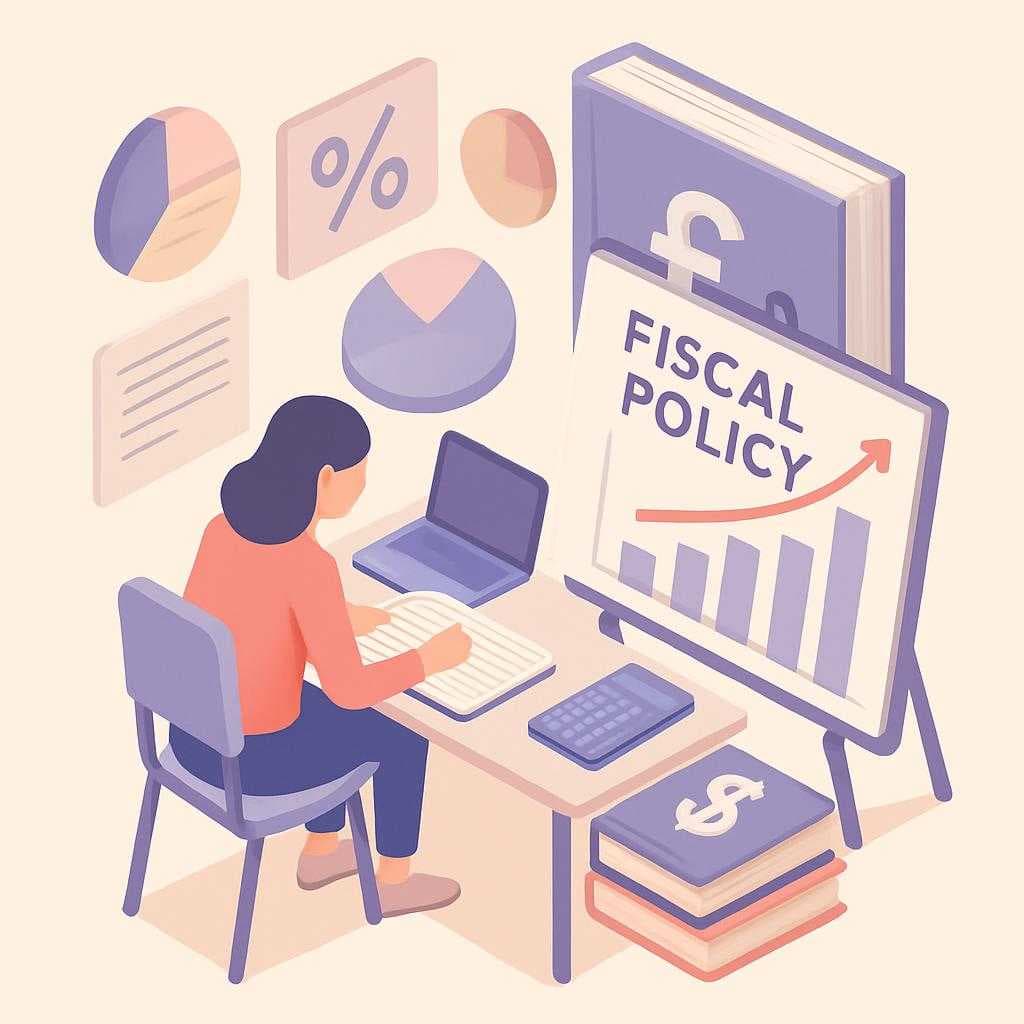Mastering Fiscal Policy: A GCSE Student’s Guide to Exam Success
Summary: Dive into the intricacies of fiscal policy with our comprehensive guide tailored for GCSE Economics students. Learn how the AQA, Edexcel, and OCR exam boards approach this crucial topic, and discover strategies to excel in your exams.
As you embark on your journey to excel in GCSE Economics, understanding fiscal policy is essential. Fiscal policy, a tool used by the government to influence the economy through taxation and public spending, is a key topic covered by major UK exam boards such as AQA, Edexcel, and OCR. In this blog post, we'll explore how to master fiscal policy and provide insights on how it appears in your exams.
Understanding Fiscal Policy
Fiscal policy involves the use of government spending and tax policies to influence economic conditions, including demand, employment, and inflation. It plays a crucial role in stabilizing the economy during different phases of the economic cycle. By increasing or decreasing public spending and altering tax rates, the government can control economic growth and curb inflation.
Exam Board Insights
AQA
The AQA syllabus emphasizes the impact of fiscal policy on economic performance indicators such as growth, jobs, and inflation. Students are expected to understand the balance between taxation and government spending, and how these elements contribute to economic stability.
Edexcel
Edexcel focuses on the application of fiscal policy in real-world scenarios. Students should be prepared to analyze case studies and data to evaluate the effectiveness of fiscal interventions. Understanding the implications of government budget deficits and surpluses is key.
OCR
OCR examines the nuances of fiscal policy and its long-term impacts on the economy. Students should be able to discuss the sustainability of fiscal measures and evaluate their outcomes. Understanding how fiscal policy interacts with other economic policies is also crucial.
Tips for Exam Success
-
Master the Terminology: Familiarize yourself with key terms like budget deficit, surplus, public debt, and fiscal stimulus. Clear understanding of these terms will help you articulate your answers effectively.
-
Use Real-World Examples: Incorporate current events and historical examples in your answers to demonstrate a practical understanding of fiscal policy.
-
Practice Data Analysis: Be comfortable interpreting graphs, charts, and tables related to government spending and taxation. Practice with past exam papers to hone this skill.
-
Evaluate Policy Impacts: Develop the ability to critically assess the short and long-term impacts of fiscal policies on different sectors of the economy.
-
Stay Updated: Keep abreast of recent fiscal policies in the UK. Understanding current government strategies will add depth to your answers.
Mastering fiscal policy is a stepping stone to achieving success in your GCSE Economics exams. By understanding the nuances of how fiscal measures influence the economy, you'll be well-equipped to tackle questions from any exam board, whether it's AQA, Edexcel, or OCR. Stay curious, practice diligently, and you'll be on your way to acing your exams!
